The continuous development of technology and the digital space brings about discussions surrounding new phenomena, and sharing a child’s personal information online is one of them.
More info:TikTok
A father found his 8-year-old’s search history that caught his attention and has sparked a discussion online
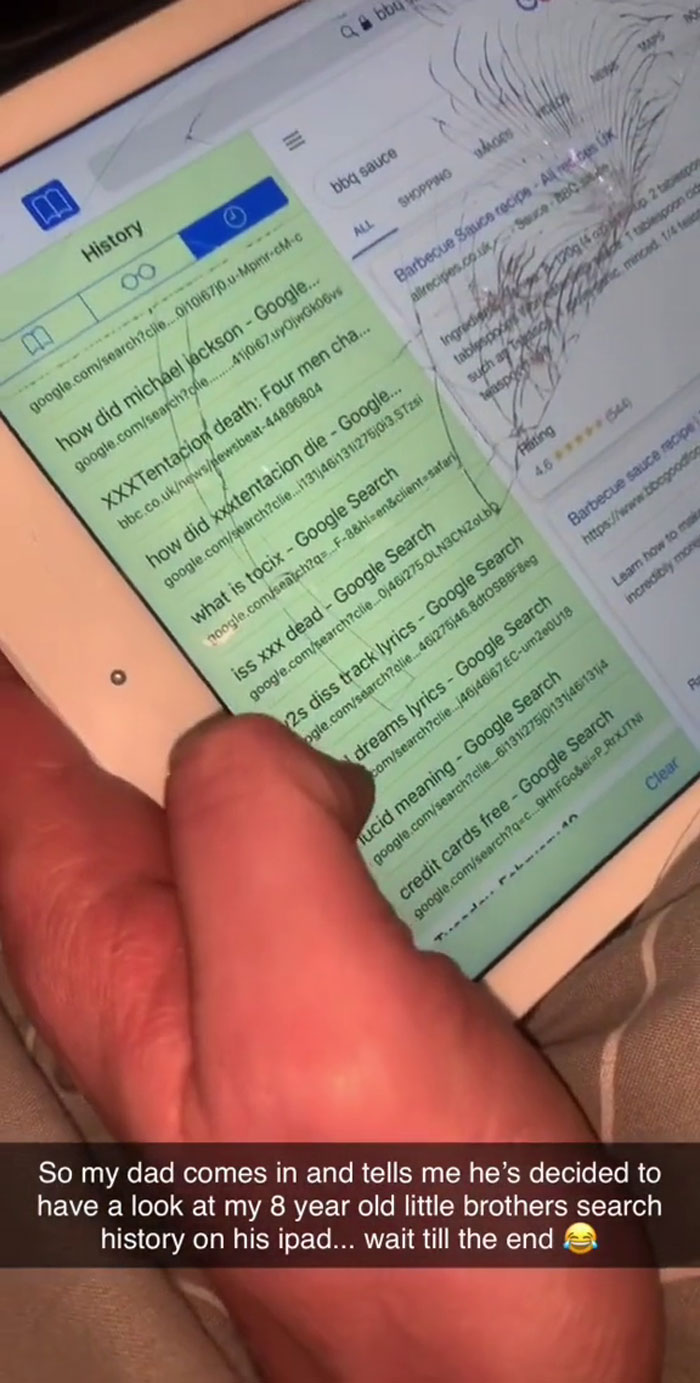
Image credits:ashleighjwil
The reactions on the internet varied greatly; some people were laughing along or at the content, others were concerned whether the content was age-appropriate for an 8-year-old, and finally, some were hesitant about the father not only checking the boy’s history but also sharing it online.
From the video, it is hard to tell what were the boy’s dad’s and his sister’s intentions; however, these are far from being the sole factor affecting the child. Similarly, there is no information about whether the boy knew about the video being shared, agreed to it being shared, or how he eventually felt about this.
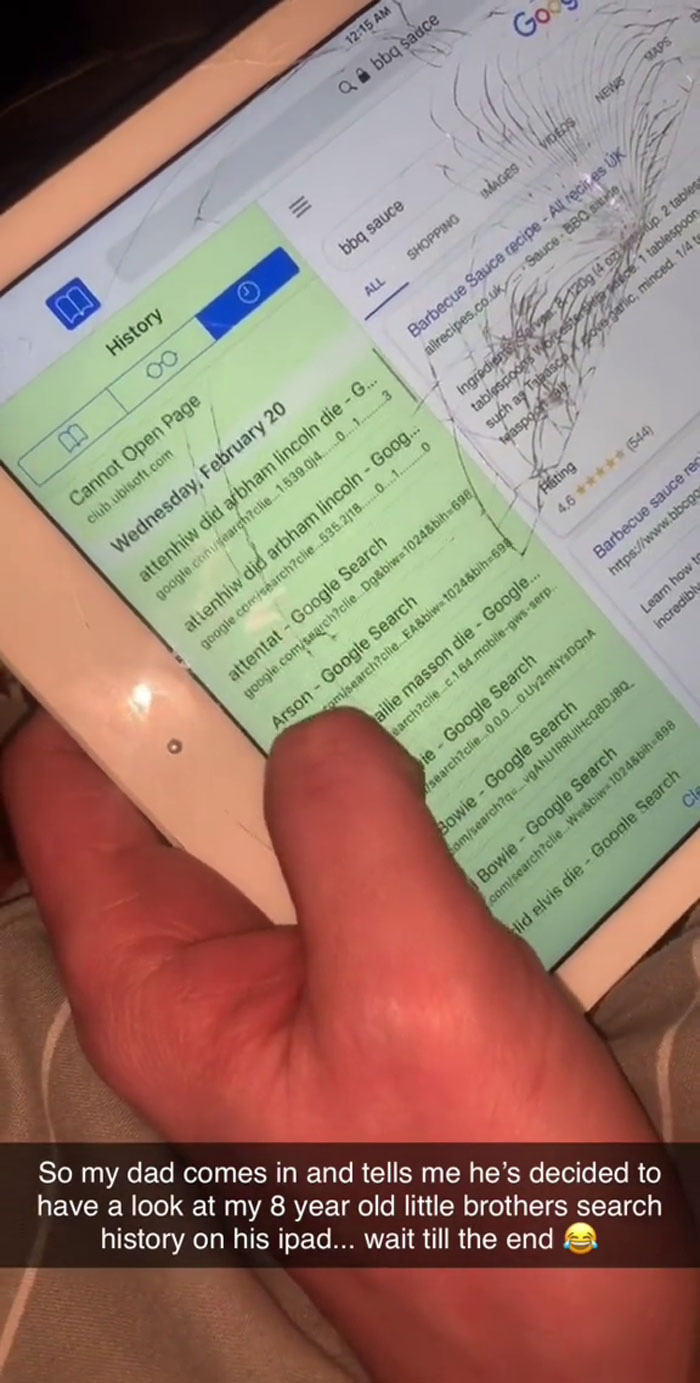
When it comes to the search record itself,US data scientist S. Stephens-Davidowitznoticedthat there was a gap between what people were found to present on official surveys and what their Google search history suggested.
This is not to say that a person can be merged with their search history online, but that there is a tendency to look up things one is not willing to ask or share with the majority of people and even anonymous surveys.
For this reason, it might be a good idea to ask for permission or only share it in cases when one is sure another person would not mind.
Such findings were alsoconfirmedin a survey from 2020 where the majority of children agreed that they at least sometimes or more often found it easier to be themselves online than when they were with people face-to-face.
The boy’s focus circled from the circumstances surrounding deaths of well-known people to a “BBQ sauce on t**ties” search
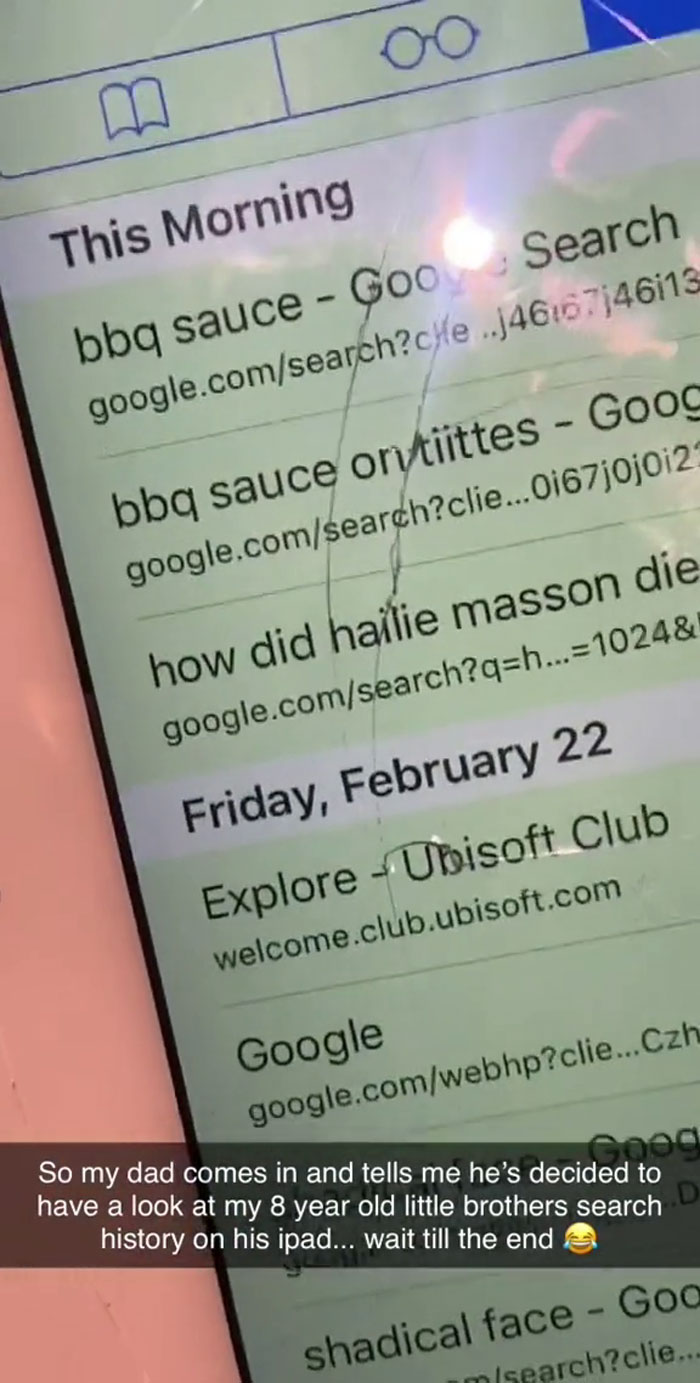
The latter search caused the father and the boy’s sister to burst into fits of laughter
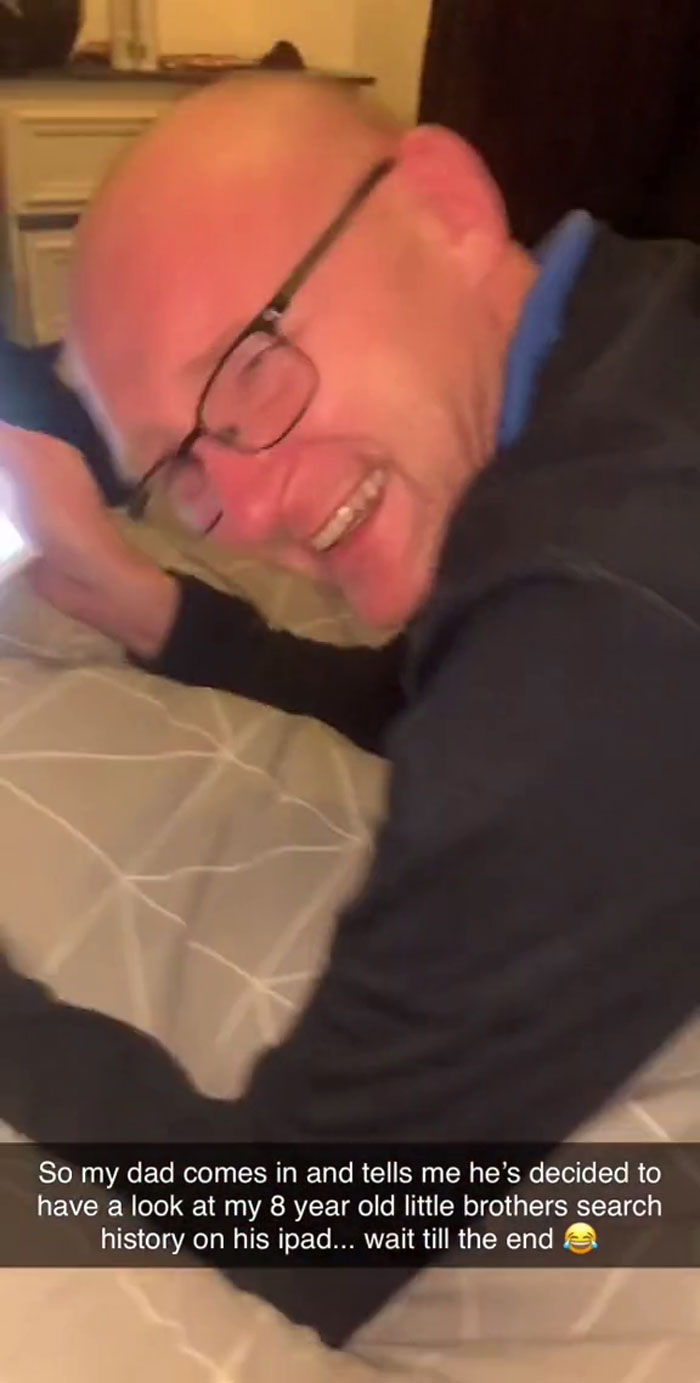
In her study, Plunkett rearranged the scenes from the well-known novel to fit today’s issues, adding that her study was about Tommy’s aunt Polly, who could very well be writing posts on social media, like “Tommy!!!”
The author examines how caregivers make decisions to disclose digital data about children that invade traditional zones of privacy and in this way sometimes threaten kids’ and teens’ ability to develop their own sense of self.
The researcher explains that her study proceeds from the understanding that privacy is about self-creation, “establishing a locus which we can call our own without undue intervention or interruption – a place where we can vest our identities.”
You can watch the original video here:
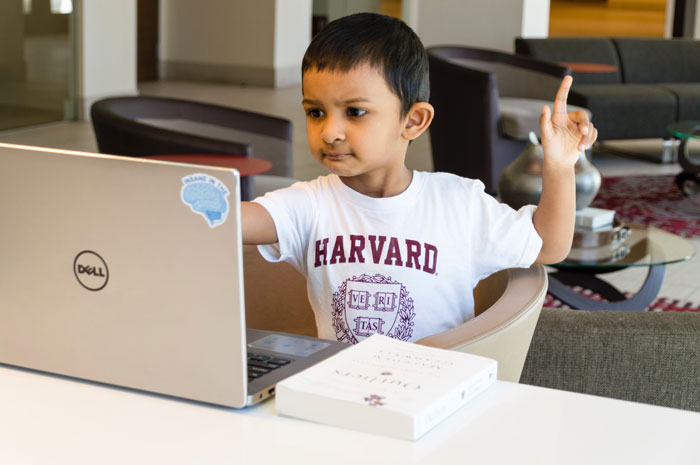
Image credits:Rohit Farmer (not the actual photo)
Contrary to this, Plunkett suggests that childhood and adolescence “should be valued as unique life stages during which kids and teenagers should have room to play, mess up, and to grow up better for having done so,” and invites parents to think about what they can do to empower and protect the kids they care for and childhood itself in the digital age.
Do you have something to add? Please, share your experience and thoughts in the comment section below!
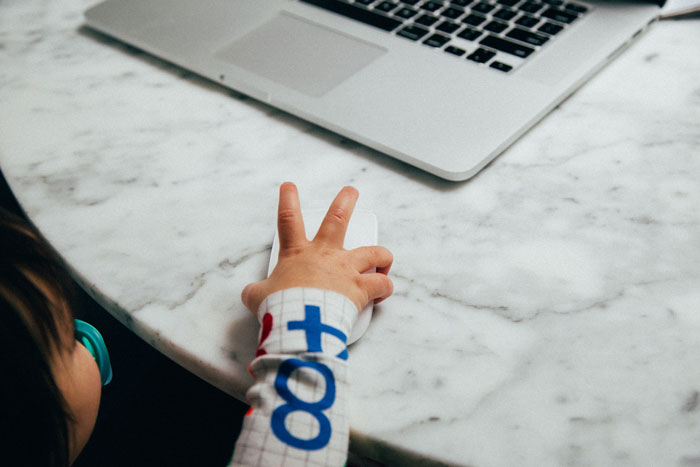
Image credits:charlesdeluvio (not the actual photo)
The reactions online varied, yet the majority of people were laughing along with the boy’s dad and his sister




















Parenting